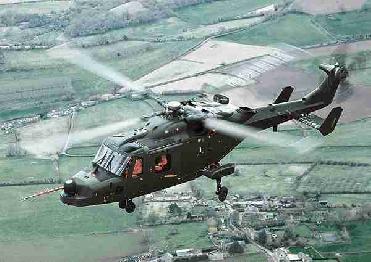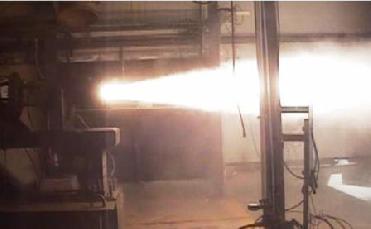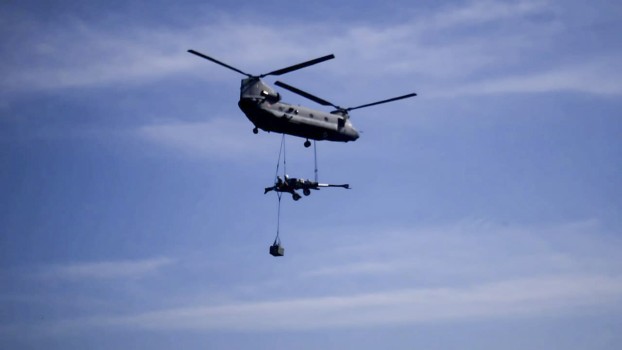
The AW159 Wildcat, formerly known as Future Lynx, is the first new British helicopter to be shown at the Farnborough air show in over 20 years. (AW photo).
YEOVIL (BNS): AgustaWestland will exhibit its AW159 Lynx Wildcat helicopter at the Farnborough International Air Show in UK.
The AW159 is also known as Lynx Wildcat in Royal Navy and British Army service is a new generation multi-role helicopter that will replace the existing series of Lynx helicopters.
The AW159 is powered by two new generation LHTEC (a partnership between Honeywell and Rolls-Royce) CTS800 engines, each of which is capable of continuously producing 1281 shp giving the helicopter exceptional hot and high performance.
The helicopter has a total mass of 5790 kg with an inbuilt capability to increase the weight to 6250 kg. The cockpit includes a fully integrated display system utilising four 10x8 inch primary displays.
Sensors of the helicopter include a nose mounted IR/TV imager with built in laser designator and for the maritime variant the Selex Galileo 7400E 360 degree active array radar. The helicopter has a comprehensive integrated defensive aids suite comprising a missile warning system, radar warning receivers and a countermeasures dispensing system for self protection.
The British Army’s AW159 Lynx Wildcat has the ability to perform a wide range of tasks on the battlefield including reconnaissance, command and control, transportation of troops and materiel and the provision of force protection.
The Royal Navy variant will provide an agile maritime capability providing anti-surface warfare capability and force protection and will operate in support of amphibious operations and be an important element in defending ships against surface threat.
On June 2006, UK Ministry of Defence has ordered sixty two helicopters, from AgustaWestland (34 for the Army and 28 for the Royal Navy) under the Strategic Partnering Arrangement, according to AugustaWestland press release.
The first helicopter will be delivered to UK MoD by the end of 2011 and the helicopters will become fully operational with the Army in 2014 and the Royal Navy in 2015.
Additionally the Royal Navy’s AW159 Lynx Wildcats will be capable of carrying a range of weapons including torpedoes, depth charges and the Future Anti-Surface Guided Weapon (FASGW).
The AW159 had performed its maiden flight at AgustaWestland’s Yeovil facility on 12th November 2009. Since then it has completed more than 30 hours of test flying and the company will perform two more test-fly later this year.
 Next Article
Next Article













The Indian Air Force, in its flight trials evaluation report submitted before the Defence Ministry l..
view articleAn insight into the Medium Multi-Role Combat Aircraft competition...
view articleSky enthusiasts can now spot the International Space Station (ISS) commanded by Indian-American astr..
view article